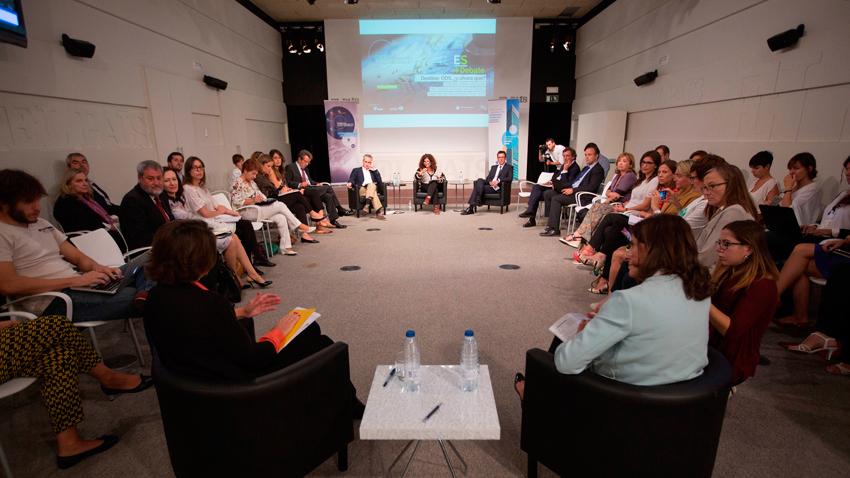Press Releases
Destination: SDG, what now?
02-10-2015

As we move towards the sustainable development of the world, society functions much like a jazz band: each musician has a score that needs to be complemented by that of others. This metaphor was adopted by a number of those attending the discussion Destination: SDG, what now? held on September 22 in the conference room of El País. The debate served as presentation of Espacio Sostenible+ (Sustainable Space +), the forum created by the Red Española del Pacto Mundial de la ONU (Spanish Global Compact Network) to encourage and enable major Spanish companies to analyze and share their role in achieving the Sustainable Development Goals (SDG).
Companies are one of the key players for successfully meeting the 17 SDGs that the world has set for 2030, following UN approval at the summit held recently in New York.
Participants agreed that during this new phase, Corporate Social Responsibility (CSR) has to definitively change the concept of aid, currently in the form of donations or philanthropy, and incorporate CSR into the inner workings of the companies themselves. "CSR is you in your business, contributing to development. It is in your interests that society prospers, because the more it does, the more customers you will have; you’ll be able to pay more taxes and the wheel will keep turning," said Elena Valderrábano, global head of Corporate Ethics and Sustainability at Telefónica. Also participating in the debate, which was led by the coordinator of Planeta Futuro, Lola Huete Machado, were José Luis Blasco, head of Governance, Risk and Compliance at KPMG in Spain; the MEP Ramón Jáuregui; Cristina Moral, head of Corporate Responsibility at Grupo Ferrovial; and a broad group of representatives of large and medium Spanish companies.
The chief obstacle to change, said Blasco, is that companies tend to suffer from "short-termism". "They have to be accountable to shareholders every December 31 and it is difficult to encourage long-term thinking, although this is changing."
Ramon Jauregui, however, was more skeptical: "Social responsibility is voluntary. Some companies do it well, but most do nothing. And you have to start with the first obligations of a business: pay your taxes in the country where you operate. Many of them are pursuing aggressive fiscal policies. Is that CSR?” he asked.
This is precisely why so many of the comments revolved around corporate compliance, not only with society but with employees, customers and suppliers. Indeed a commitment here, in the opinion of Valderrábano, would be sufficient to achieve the SDGs.
It may interest you



